第25章
The last man whom I will mention is Carlyle, seen by me several times at my brother's house, and two or three times at my own house. His talk was very racy and interesting, just like his writings, but he sometimes went on too long on the same subject. I remember a funny dinner at my brother's, where, amongst a few others, were Babbage and Lyell, both of whom liked to talk. Carlyle, however, silenced every one by haranguing during the whole dinner on the advantages of silence. After dinner Babbage, in his grimmest manner, thanked Carlyle for his very interesting lecture on silence.
Carlyle sneered at almost every one: one day in my house he called Grote's 'History' "a fetid quagmire, with nothing spiritual about it." I always thought, until his 'Reminiscences' appeared, that his sneers were partly jokes, but this now seems rather doubtful. His expression was that of a depressed, almost despondent yet benevolent man; and it is notorious how heartily he laughed. I believe that his benevolence was real, though stained by not a little jealousy. No one can doubt about his extraordinary power of drawing pictures of things and men--far more vivid, as it appears to me, than any drawn by Macaulay. Whether his pictures of men were true ones is another question.
He has been all-powerful in impressing some grand moral truths on the minds of men. On the other hand, his views about slavery were revolting. In his eyes might was right. His mind seemed to me a very narrow one; even if all branches of science, which he despised, are excluded. It is astonishing to me that Kingsley should have spoken of him as a man well fitted to advance science. He laughed to scorn the idea that a mathematician, such as Whewell, could judge, as I maintained he could, of Goethe's views on light.
He thought it a most ridiculous thing that any one should care whether a glacier moved a little quicker or a little slower, or moved at all. As far as I could judge, I never met a man with a mind so ill adapted for scientific research.
Whilst living in London, I attended as regularly as I could the meetings of several scientific societies, and acted as secretary to the Geological Society. But such attendance, and ordinary society, suited my health so badly that we resolved to live in the country, which we both preferred and have never repented of.
RESIDENCE AT DOWN FROM SEPTEMBER 14, 1842, TO THE PRESENT TIME, 1876.
After several fruitless searches in Surrey and elsewhere, we found this house and purchased it. I was pleased with the diversified appearance of vegetation proper to a chalk district, and so unlike what I had been accustomed to in the Midland counties; and still more pleased with the extreme quietness and rusticity of the place. It is not, however, quite so retired a place as a writer in a German periodical makes it, who says that my house can be approached only by a mule-track! Our fixing ourselves here has answered admirably in one way, which we did not anticipate, namely, by being very convenient for frequent visits from our children.
Few persons can have lived a more retired life than we have done. Besides short visits to the houses of relations, and occasionally to the seaside or elsewhere, we have gone nowhere. During the first part of our residence we went a little into society, and received a few friends here; but my health almost always suffered from the excitement, violent shivering and vomiting attacks being thus brought on. I have therefore been compelled for many years to give up all dinner-parties; and this has been somewhat of a deprivation to me, as such parties always put me into high spirits. From the same cause I have been able to invite here very few scientific acquaintances.
My chief enjoyment and sole employment throughout life has been scientific work; and the excitement from such work makes me for the time forget, or drives quite away, my daily discomfort. I have therefore nothing to record during the rest of my life, except the publication of my several books.
Perhaps a few details how they arose may be worth giving.
MY SEVERAL PUBLICATIONS.
In the early part of 1844, my observations on the volcanic islands visited during the voyage of the "Beagle" were published. In 1845, I took much pains in correcting a new edition of my 'Journal of Researches,' which was originally published in 1839 as part of Fitz-Roy's work. The success of this, my first literary child, always tickles my vanity more than that of any of my other books. Even to this day it sells steadily in England and the United States, and has been translated for the second time into German, and into French and other languages. This success of a book of travels, especially of a scientific one, so many years after its first publication, is surprising. Ten thousand copies have been sold in England of the second edition. In 1846 my 'Geological Observations on South America' were published. I record in a little diary, which I have always kept, that my three geological books ('Coral Reefs' included) consumed four and a half years' steady work; "and now it is ten years since my return to England.
How much time have I lost by illness?" I have nothing to say about these three books except that to my surprise new editions have lately been called for. ('Geological Observations,' 2nd Edit.1876. 'Coral Reefs,' 2nd Edit.
1874.)